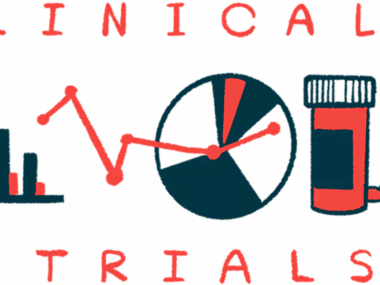Apathy treatment IRL757 found safe in multiple doses
Treatment well tolerated in volunteers in second part of Phase 1 trial
Written by |

Multiple doses of apathy treatment IRL757 for Parkinson’s disease and other neurological disorders were well tolerated and presented a favorable pharmacological profile in the second part of a Phase 1 trial.
This part of the Phase 1 clinical trial (NCT06493045) tested the safety and tolerability of multiple ascending doses of the Irlab Therapeutics treatment in healthy volunteers. The first part of the trial, which tested the therapy as single ascending doses, demonstrated that it was safe and well tolerated.
Based on the positive results, the company initiated a Phase 1b trial to assess IRL757’s safety and early efficacy in treating apathy in people with Parkinson’s. The study, being done in cooperation with The McQuade Center for Strategic Research and Development, is expected to start recruiting patients in the second half of 2025.
“We are very pleased that IRL757 is well absorbed and provides good exposure in the body while demonstrating excellent tolerability and a favorable safety profile,” Joakim Tedroff, MD, chief medical officer at Irlab, said in a company press release. “These results give us a strong foundation for the continued clinical development of the drug candidate, which has the potential to treat and counteract apathy in millions of patients with neurodegenerative diseases.”
A significant proportion of people with Parkinson’s and other neurodegenerative conditions are affected by apathy, which is characterized by resignation and indifference and contributes to cognitive decline and disability.
Signaling disruption
Apathy is believed to be associated with a disruption of nerve signaling between the cerebral cortex — the outermost layer of the brain that regulates thoughts, emotions, and behaviors — and deeper brain regions. There are no approved therapies for the condition.
IRL757 is an oral medication that is thought to address apathy by restoring disrupted nerve signaling. In preclinical studies, the treatment demonstrated potential to improve motivation.
The Phase 1 trial enrolled 82 healthy volunteers, ages 18 to 55, and was conducted in two parts. In the first part, participants were assigned to one of five dose groups and received either a single dose of IRL757 or a placebo. This phase tested up to four increasing dose levels.
After the first part’s completion, the multiple ascending dose phase began. In this second part, participants received one of two or three dose levels previously tested in the first phase or a placebo, once daily for 10 days, to assess safety and pharmacokinetics over repeated dosing. Pharmacokinetics refers to how a compound moves into, through, and out of the body.
Results from both parts of the trial demonstrated that IRL757 was well absorbed and yielded optimal drug concentration in the body. All participants completed the study, and no serious adverse events were recorded.
This study was funded by The Michael J. Fox Foundation for Parkinson’s Research (MJFF) through a grant of 20 million Swedish kronor (about $1.8 million). The foundation’s support “means a strong external validation of the project’s goals and potential,” Irlab said.
The company also conducted a Phase 1 trial (NCT06699628) testing IRL757 in healthy adults aged 65 and older. This trial yielded similar results on the treatment safety, tolerability, and pharmacokinetic profile.






